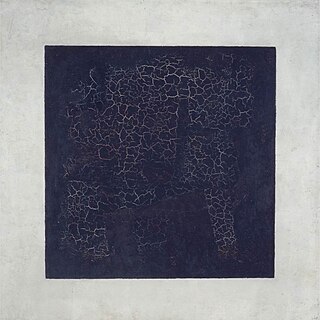Related Research Articles
Gerda is a feminine given name. Notable people with the name include:
Fritz originated as a German diminutive of Friedrich or Frederick, as well as of similar names including Fridolin and, less commonly, Francis. Fritz (Fryc) was also a name given to German troops by the Entente powers equivalent to the derogative Tommy. Other common bases for which the name Fritz was used include the surnames Fritsche, Fritzsche, Fritsch, Frisch(e) and Frycz.

Schwarz is a common surname, derived from the German schwarz, pronounced[ˈʃvaʁts], meaning the color black. Czech female form is Schwarzová. Notable people with the surname include:
Holst and von Holst are surnames. In Denmark and Norway they are of Medieval origin, meaning Holsatian. They may refer to:
Harald or Haraldr is the Old Norse form of the given name Harold. It may refer to:
Ernst is both a surname and a given name, the German, Dutch, and Scandinavian form of Ernest. Notable people with the name include:
Johannes is a Medieval Latin form of the personal name that usually appears as "John" in English language contexts. It is a variant of the Greek and Classical Latin variants, itself derived from the Hebrew name Yehochanan, meaning "Yahweh is gracious". The name became popular in Northern Europe, especially in Germany because of Christianity. Common German variants for Johannes are Johann, Hannes, Hans, Jens and Jan. In the Netherlands, Johannes was without interruption the most common masculine birth name until 1989. The English equivalent for Johannes is John.

Kurt is a male given name of Germanic or Turkish origin. Kurt or Curt originated as short forms of the Germanic Conrad, depending on geographical usage, with meanings including counselor or advisor.

Joachim is a given name, derived from the Hebrew Yehoyaqim, meaning "raised by Yahweh".

Alfred is a masculine given name of English origin, a modern descendant of the Anglo-Saxon name Ælfræd, formed from the Germanic words ælf, meaning "elf", and ræd, meaning "counsel". Its feminine form originating from Romance languages is Alfreda, and diminutives of Alfred include Al, Alf, Alfy, Alfie, Fred, and Freddy. After the 11th-century Norman Conquest, many variants of the name emerged, most of which were not carried to the modern day. Today, Alfred is still in regular usage in a number of different regions, especially Great Britain, Africa, Scandinavia, and North America. It is one of the few Old English names that came into common use in Europe. Its name day is the 3rd of January both in Norway and Sweden.
Christian is a unisex given name, which originated as a baptismal name used by persons of the Christian religion. It has been used as a given name since the Middle Ages, originally for males. It was later used for females, without any feminising word endings.

Oscar or Oskar is a masculine given name of English and Irish origin.
Hannes is a masculine given name and a diminutive of Johannes or Hannibal.

Rudolph or Rudolf or Rodolphe is a male first name, and, less commonly, a surname. It is an ancient Germanic name deriving from two stems: Hrōþi, Hruod, Hróðr or Hrōð, meaning "fame", "glory" "honour", "renown", and olf meaning "wolf" (Hrōþiwulfaz).
August is both a given name and surname developed from the Latin, Augustus. Derived from the Latin word augere, meaning "to increase", Augustus had the meaning "esteemed" or "venerable" and was a title given to Roman emperors.

Anton is a masculine given name. It is derived from the Latin name Antonius, and used in various languages. Notable people and characters with the name include:

Heinrich is a German given name of ancient Germanic origin and cognate of Henry. Female forms are Henrike and Henriette. The most famous patron saint is Henry, as the German Emperor Henry II.
Lotte is a female given name. It is a diminutive of the names Lieselotte and Charlotte, which itself is a female form of the male name Charlot, a diminutive of Charles.
Jakob is a masculine given name that is a variant spelling of the Hebrew given name Jacob.
Karl is an originally Germanic variant of the male given name Charles, meaning "free man". For further details on origin and meaning, see Churl and Charles.
References
- ↑ Chisholm, Hugh, ed. (1911). . Encyclopædia Britannica (11th ed.). Cambridge University Press.
- ↑ Dahl, Árni (2005). Navnabókin. ISBN 9789991849393.[ page needed ]
- ↑ Otterbjörk, Roland (1979). Svenska förnamn. ISBN 9789121109373.[ page needed ]
- ↑ Stemshaug, Ola; Kruken, Kristoffer (1995). Norsk Personnamnleksikon. ISBN 978-8252120363.[ page needed ]
- ↑ Meldgaard, Eva Villarsen (2004). Den store navnebog. ISBN 9788711160435.[ page needed ]